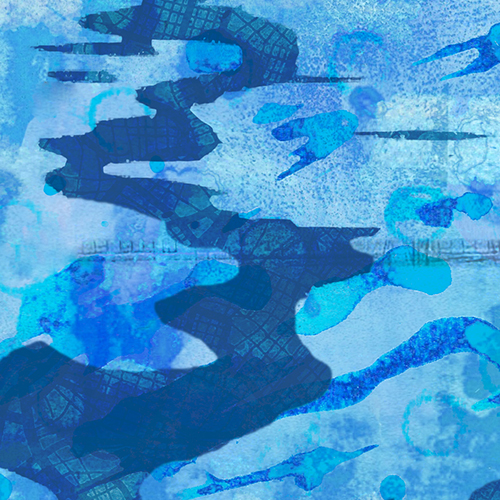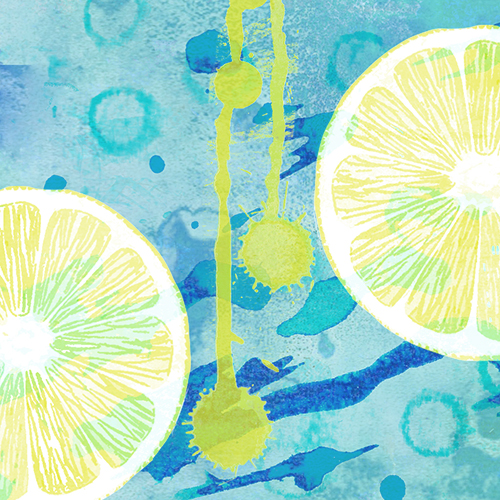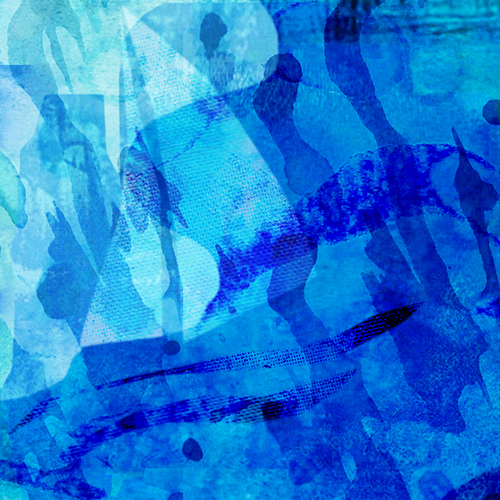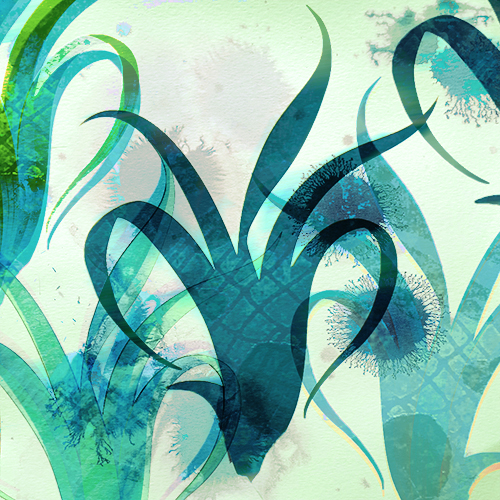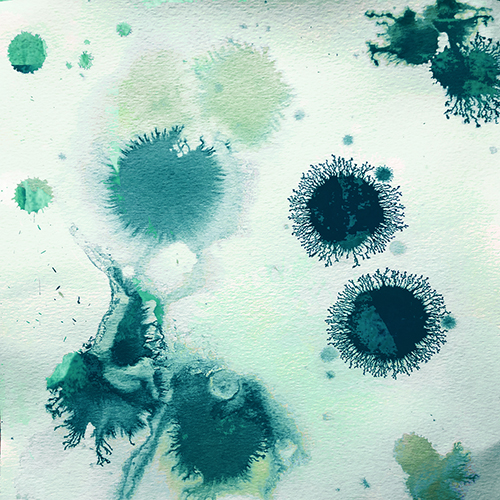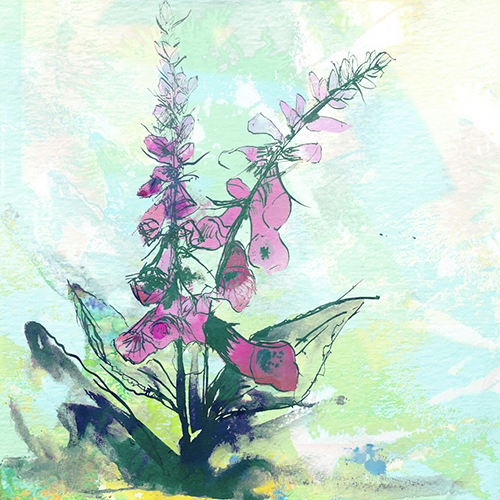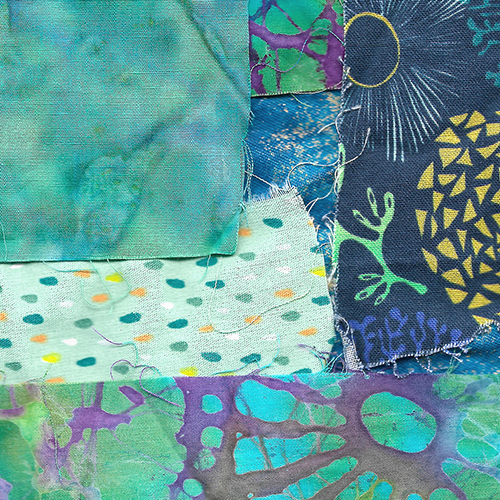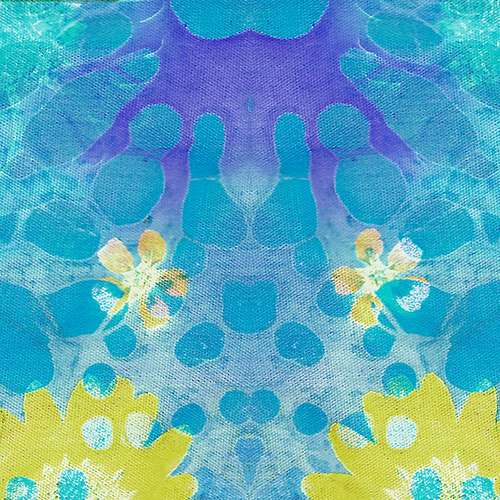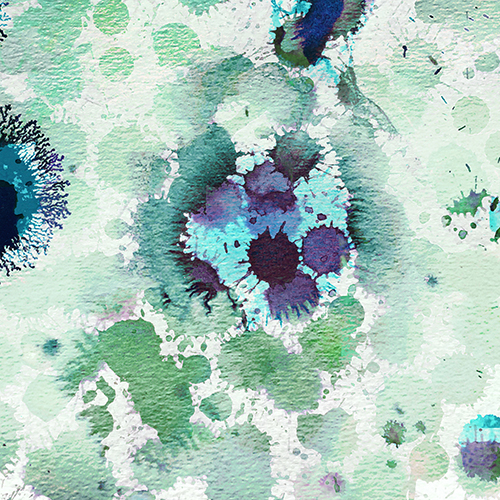Why I Write and Why I Drink
Why I Write and Why I Drink
Non-fiction
by Rob Magnuson Smith
Some time ago, I wrote puff pieces for the drinks trade in exchange for cash, holidays or free booze. On a press junket to a top distillery in Islay, I realized why it is that I write, and why it is that I drink. The revelation hit me in the oldest whisky cellar on the planet, where I was covering the release of a rare 1957 single malt that would eventually sell for $150,000 a bottle.
Mine was a private tasting—just the distillery manager and me—in a cellar below sea level where whisky breathes through the casks, picks up flavours of Spanish oak and matures at its own pace. All writers for the release were promised drams of whatever we wanted, but only one solitary sip of the coveted ‘57.
The manager led me between the barrels, aging away on their tall wooden racks. The prized hogshead stood in the distance under a spotlight. On my writing and drinking table, a jug of water and dram glass waited beside a pad of paper and ballpoint pen. The twitches crept across my lips. For twenty-four hours, I’d abstained for fresh taste buds and a clear mind.
In the fourteenth century, whisky emerged in Scotland—the Irish dispute the claim—when the hereditary MacBeath clan of medical professionals produced a distillation using mythical herbal lore. Whisky is a relatively simple concoction. The only three recognized ingredients are water, barley, and yeast. These days, of course, everything from mashing to storage is analysed at a molecular level. The premier single malts are created, debated, and refined, again and again, like an overly workshopped poem, long before bottling.
I can still hear the distillery manager’s steady tap, tap, tap as he banged open the bung on the hogshead with his wooden hammer. He dipped his glass valenche into the barrel and held out my sip. The vintage carried an ominous colour of rich, dark caramel. He poured the whisky into the sipping dram, waited for the last drop to plop into the glass, and stepped back.
I took my post under the spotlight. I held up the glass. The manager looked away, as if to allow the two of us space—my drink, and my writing self—as I brought the aroma to my nose.
I hesitated, and put the glass down. It was nerves. More words have been written about whisky than any other spirit. The crowded descriptive space features ludicrous claims, strained similes and comical hyperboles. I heard a voice—my own voice—telling me not to bother.
As a writer and a drinker, I had entered the maelstrom. The waves crashed against the distillery walls, and a revelation came: I write, and I drink, because I am uncomfortable in the presence of my own self.
***
George Orwell claimed, ‘One cannot write anything readable, unless one constantly struggles to efface one’s personality.’ I have acquired a lifelong companion in this struggle. The effacement from a well-constructed sentence equals that of a drink. The writing and the drinking work on independent tracks toward the same goal—so that I can become other.
I am still learning to understand how words and drinks have such power to displace me. Every day, I want to gorge myself with them, whether printed or pixelated, decanted or poured. So I have learned to respect certain rules.
Quality matters. The best writing invites interpretation, challenging our ability to comprehend the forces behind them. Unique or complex drinks have the same capacity, inviting us into an experience we only partially understand, and reconstituting us as we try.
Amount matters. I have underwritten scenes, or made only a cursory exploration of a subject or character, and left the reader wanting. Likewise, I sometimes dabble with a small drink, overcautiously taking too little to do any good.
On the other hand, too much writing or drinking reveals a lack of control. After writing binges, I discover on my desk a record of manic enthusiasm. Someone inside me created those unpublishable passages, but who? His cousin has a three-word vocabulary. He says, ‘Have a drink.’ The morning after, I take out the empties in pain. Perhaps every binge writer and drinker hides a weaker self, a vulnerable sap unable to resist the false friends he fears but cannot avoid.
It’s true that my drinking sometimes interferes with my writing. More often, my writing interferes with my drinking. If I am making a good run at an article, shaping a story or finishing a chapter in a novel, my urge for a drink disappears. I enter a kind of trance similar to being drunk. Scenes appear unbeckoned. Pages of dialogue flow rapid and true. I look up at the clock to find hours have passed, without the intrusion of my own needling thoughts. It’s like a pint in a pub, or cocktails with friends. I am together with characters cultivated with love. I listen to their stories. I laugh at their idiosyncrasies. I am drowned in the wonderful cacophony of other voices.
During the shifting lockdowns of pandemic Britain, I wrote and I drank even more than I should have. This increase was due to the stifling closeness of myself—a singularly frightening experience. To try and get away, I chased words with drinks, and followed drinks with more words.
I should have read the warning signs. Whenever I produce material I know to be subpar, I write and drink too heavily. It happened once before, in the immediate aftermath of divorce. To avoid financial collapse, I worked hard: editing manuscripts for literary consultancies, hustling commissions for any magazine still in business, ghost-writing novels for which mediocrity was rewarded. Writing for others eclipsed the novel I’d neglected, the short stories orphaned.
Excessive writing produced excessive drinking. Or was it the other way around? During my divorce, it went like this: I woke at dawn and worked all morning. Lunch might have happened. By sunset, I’d had four or five pints at my local, followed by a bottle of wine with dinner—or, no dinner to keep on drinking. Typically, this meant a stack of double gin martinis followed by a life-and-death sprint back to my local before last orders.
During the pandemic I returned to these habits, only at home. Further misdeeds arose like foul fumes in the attempt to combine writing and drinking alchemically, yielding what I can only describe as toxic poetry: wobbly life-writing, laden with authorial indiscretions, and a drunken avoidance of any responsibility for my protagonist.
I relay these facts with no particular alarm. The quantity of my writing and drinking does not seem inordinate, only true to my needs. I certainly don’t boast, like some writers and drinkers, of the number of books penned or shots drained. I do want to avoid becoming a drinker like my father, who in his last years drank morning to night, cleanly divided by a midday purge. One eye of mine keeps watch on this inheritance, even as the eye itself grows foggy.
I am also aware of certain danger areas. I tend to drink more at social occasions, especially literary ones. The combination of writers and alcohol can create the most hideous circumstances, further duplicating the worst elements of my personality and my chronic need to escape the sound of my own thoughts. Going to book launches, or conferences where writers stand around the bar, talking about recently published books, or recently signed book deals, or even books-in-progress, makes me drink in extremely high amounts.
When the evening is young, my increased thirst carries a thrill of doing two things I love at the same time: discussing literature, and drinking. This pairing carries a short and poisonous shelf life. I should know to leave early. Instead, I stay at the bar, escaping myself in plain sight.
I have also learned not to entertain old romantic notions of the drunk writer. Those who say the best writers drink are sloppy thinkers. Sure, literary luminaries like Dorothy Parker, William Faulkner and Tennessee Williams were famous alcoholics. More were not— Shakespeare, Milton, Haldor Laxness, Flannery O’Connor. It’s not the drinking behind good work, it’s adhering to Kierkegaard’s faith in the strength of the absurd, reading widely, and logging time at the desk. No matter how well you write, alcohol will eventually sap your vitality. Finally, it removes the self. A few years before his death, F Scott Fitzgerald confessed, ‘there was not an “I” any more—not a basis on which I could organize my self-respect—save my limitless capacity for toil.’
Many tragic heroes provide guidance. Malcolm Lowry, the most infamous writer-drinker, happens to be my favourite British novelist. You’d have to be a fool to suggest Under the Volcano could have been written without excess alcohol. Most passages of this gimlet-eyed, hallucinatory novel were influenced by extended binges of mescal, tequila, gin, cheap beer—anything Lowry could get his hands on. Perhaps no other writer drank in such miraculous fashion. He drank for weeks on end. He drank and awoke in different countries. In the end, he died from his addiction as many alcoholic writers do, chasing the decay of booze-induced visions.
Underneath Lowry’s impulse to write, I’d wager, boiled good old-fashioned self-loathing. This was the opinion of his mentor, the Jungian poet laureate of the American South, Conrad Aiken, who harnessed his own alcoholic alter-ego for the page. Aiken’s writing and drinking came from the same self-annihilating source. He never let himself forget, for artistic reasons, the bright Savannah morning when he was awoken at the age of nine by gun shots. Walking down the corridor to his parents’ bedroom, he found them dead. Aiken learned they’d had yet another drunken squabble, and wrote out the plot of their murder-suicide.
***
Writing about the rarest bottled whisky on Islay should have been fun. When asked to join the press junket, I imagined all the .pleasures I’d have. I pictured my name in print, testifying in poetic language to the calibre of the vintage. But there is a difference between a simple pleasure, and one that only relieves anxiety. The former presupposes a unified self. The latter points to its fragmentation.
What are new flavours? What is the self? At the moment we taste something unique, we are forever changed. Perhaps it is the case that all of us run away, at every chance, from our so-called original selves—through work, reading and writing literature, watching films, tasting wine, or reproducing yet another self and hoping for the best. I conned myself into believing that a press junket to Islay would extend my creative work. These blandishments were simply the components of an elaborate rationalisation, my personal defense mechanism of choice.
That morning at the hogshead, my rationalisations were broken wide open. The fog cleared, and I finally understood. My writing and my drinking were cloaking devices. They needed to be exposed and reconciled, or I was in danger of disappearing entirely.
‘The chemists think they’re onto what happens in these casks,’ the distillery manager told me, as I stood there frozen at my table. He had a soft, feathery voice. He reminded me of those medics who relieve anxiety by talking about the mundane. He told me his first job had been digging drains outside the distillery, forty-six years ago. ‘I hope they never find out what goes on with this whisky,’ he said. ‘If they ever do, they’ll fix it to suit themselves.’
I asked him a few questions about the ’57 vintage. I expected routine replies to do with peat smoke and barrel time in Spanish sherry oak. He was more interested in discussing fiction.
‘You’re a novelist, aren’t you?’ he asked. ‘What are you working on at the moment?’
I stared at the dram in my hand. I told him about my novel Scorper, about a disturbed American chasing after his ancestral roots in Sussex. It would come out the following year. ‘My protagonist has psychological issues,’ I said. ‘Insecurities about life.’
‘I thought that was your first novel.’
‘That was about a gravedigger.’
‘Oh. You’ve made progress, then.’
In 1957, eight years after winning the Nobel and short on funds, William Faulkner began a two-week lectureship at the University of Virginia. The first night, he stepped to the bar to pay his five-dollar tab. The next night, he hailed the bartender to pay. Not necessary, he was told, five dollars was to be his flat bar bill—for all fourteen days of his residence.
Faulkner reportedly went white as a sheet. He had twelve days of free booze before him, and he knew what that entailed. ‘Aw, no,’ he reportedly said, slowly shaking his head. ‘That just ain’t right.’
Writers are experts at deception. They deceive others, and they deceive themselves. If you dangle something desirable under their noses, such as money and publication, they improve at their own game. When offered something too good, this self-deception comes crashing down. They sniff danger—a danger that lies within.
Writing and drinking to efface the self means that highs are soon followed by lows. In 2004, after I inexplicably won an award for my manuscript The Gravedigger, I was flown to New Orleans, handed a check for $10,000, and draped with a gold medal embossed with Faulkner’s profile. Top editors and agents from New York appeared at my side. They were the very ones I’d already sent my manuscript to, months before, without reply.
Naturally, I became over-excited. Nervous, arrogant, over-confident and insecure, both grateful and suspicious of their company, I simply drank, and drank, and drank, for five straight days. I didn’t eat. I just drank. A few kind souls tried to intervene. The organisers assigned me a ‘minder’, a Vietnam War vet and Pulitzer Prize winner, but even he gave up. When I looked around, at the end of my unveiling, the agents and editors had gone.
I had done it—manifested my low self-worth, and made my fears come true. Nobody would ever want to publish my work now. The next logical step was projection. I angrily decided they weren’t worth my attention. And I set out to prove it.
It was the lowest point in my literary life. I have an unfortunately clear memory of tracking them down to tell them off. Still wearing the medal around my neck, I stormed out into the night. They hadn’t gone far. There they all were, the top literary agents and heads of publishing houses sharing a bank of tables in an exclusive French Quarter bar. Seeing me stumble toward them, they suddenly went quiet.
Finger wagging, I listed the worst novels they had recently published, one after the other. They had betrayed their calling, I told them. They didn’t really care about the written word.
‘It’s actual dog shit you’ve been publishing,’ I said. ‘Literary dog shit.’
My bar bill at the end of my stay in New Orleans came to $1145. Checking out of the hotel, I held the document in my trembling hands. It was a paper river of gin martinis. Each had its own time stamp. Between noon and midnight, each day, I’d drunk enough to kill myself. It would be six years before I found an agent across the Atlantic willing to look at my so-called winning manuscript, and eight years before the novel finally appeared.
***
The distillery manager smiled as I still struggled to begin. ‘After that ’57,’ he said, ‘you know you can taste anything you like.’ He waved up at the wooden racks, rising like the archways of a cathedral, where hundreds of silent hogsheads nestled in their chambers. ‘You know, to get some context. Over a hundred years of single malts, just for you.’
‘Aw, no,’ I muttered. ‘That just ain’t right.’
It must have showed that I was nervous. The only writers worth anything were poets—my dad’s refrain. He had tried his hand, of course. He knew. Of all those published, he’d insisted, only a handful ever meant anything. The rest, he liked to say, were nothing more than dog shit.
I was writing the last chapter of The Gravedigger when he collapsed under a hedge in Worcestershire. He’d been barred from his local and walked eight miles to get served, then died of a heart attack walking home. The day before, he had burned everything he owned in one of his many acts of suicidal rage. Maybe he too had voices he wanted gone. During his last years he stopped reading his favourite poems. He no longer drank English ale, but the most rancid scrumpy. He carried a heady stench of this sour concoction which corroded nasal passages. When they found his body, he had no ID, making his own self-effacement come true. He remained unidentified in the morgue for weeks.
I finished the novel. I buried the man. I had worked as an apprentice gravedigger for research, and knew what to do. Not long after, I won the Faulkner prize.
There wasn’t even a short-lived triumph. Apparently, the sudden death of a parent can create an ‘incomplete mourning,’ a fractured self that widens if not reconciled. William Styron wrote, ‘Such reconciliation may be entwined with the quest for immortality…no less than that of a writer of fiction, to vanquish death through work honoured by posterity.’
Posterity from work—what a strange, delusional, if comforting concept, probably invented by fiction writers. Recently, my third novel Seaweed Rising finally appeared. It wasn’t an easy process. The same agent who took on The Gravedigger and sold Scorper told me the novel was too strange. The writer she’d signed on was unrecognisable. I can’t imagine anyone will publish it, she warned me.
It’s true that ‘I’ had become someone else. So I found another agent, someone who found the novel strange in a good way. I wrote this novel, I explained, because I know that seaweeds are coming for me. They’re coming for all of us. I know this because I sleep with them. They surround the boat I live on. They creep toward my head each night, waiting for the end. He understood. Writing and drinking can unveil all sorts of terrors.
‘Go on, then,’ the distillery manager urged, down in the cellar. ‘Give it a go.’ He politely averted his gaze again.
I lifted the glass to my nose. This time, the aroma evoked desire. I closed my eyes and saw a field of wildflowers. I heard bees, and smelled honey. In the vault stood a man with an awakening palate, a man who realised he’d never really had whisky, not like this. It was the stuff of epiphanies.
One smell of the ’57 created a wish for life, for love, for immortality. Sipping it—well, that uncovered the substratum. There were three discrete stages: the embrace of a delicate mouth-feel, followed by pine smoke along the palate, then a long, lingering finish of sea salt. And pepper. And caramel. And heather. I chased that complex finish up and down the vault, never to find it again. My taste buds were both awakened and tormented, long after my flight home.
***
Back in my flat, I had a difficult time writing the article. Even though I’d made my tasting notes, I was stuck. I usually wrap up my shorter pieces in one or two sittings, but as the hours passed, I still couldn’t do the vintage justice. My father stood in my mind’s eye, waiting for mistakes. I was both exposed and returned to myself, and the unwanted voices had grown louder.
The distillery manager had given me a bottle of their signature 12-year Scotch to take home. I went into the kitchen and poured myself a double. I still hadn’t had breakfast. So I write and I drink because I want to be erased, I told myself. Now it seemed impossible—the mirror just wouldn’t go away. Holding the whisky above my dirty dishes, I consulted a darker future. I couldn’t hear the waves of Islay. I couldn’t see fields or bees. I only smelled epitaphs on gravestones, and wet soil. After a moment, I put the glass down. I covered it with a tea towel, like silencing a parrot.
I returned to my desk. I wrote and wrote. Gradually, my self dissolved in the only way that gives me peace. With each sentence, a new person emerged that thwarted the last, the one that forever tells me I’m useless. The voices of creation and annihilation reached a temporary agreement.
This is what writing does. It permits us to find our way, the morning after. It leads us away from our old selves in a continuous journey of insights, experiments and amendments. Perhaps the effort alone proves we are never completely effaced.
It is also what drinking can do. After I filed my piece, the beautiful cocktail sunset came at last. I returned to my kitchen. I released my whisky glass from its cage. I drank, poured another, and drank again. This time, I didn’t have to write about it. I just introduced the multiple voices in my mind, like so many arrivals to a party, and listened at a distance.
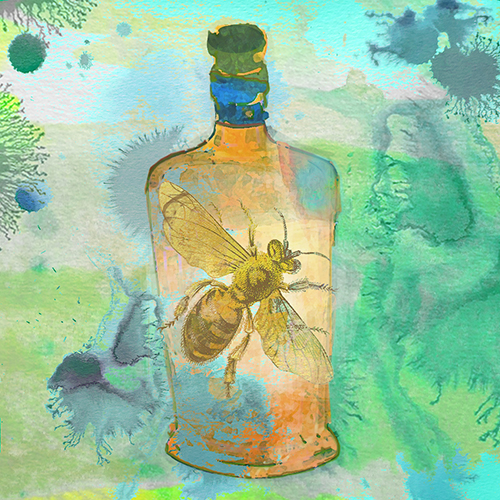
About the Author
Rob Magnuson Smith is the author of The Gravedigger (Pirate’s Alley William Faulkner Award) and Scorper (Granta Books). Scorper was described by the Independent on Sunday as ‘an odd, original, darkly comic novel… Kafka crossed with Flann O’Brien’. His third novel Seaweed Rising appears in November 2023. Rob’s short fiction has appeared in Granta, The Saturday Evening Post, Ploughshares, the Australian Book Review, the Guardian, Cornish Short Stories (The History Press), Fiction International, Guillemot Press and elsewhere. He has won the Elizabeth Jolley Award and been longlisted for the Sunday Times EFG Short Story Award. Visit Rob’s website here.


